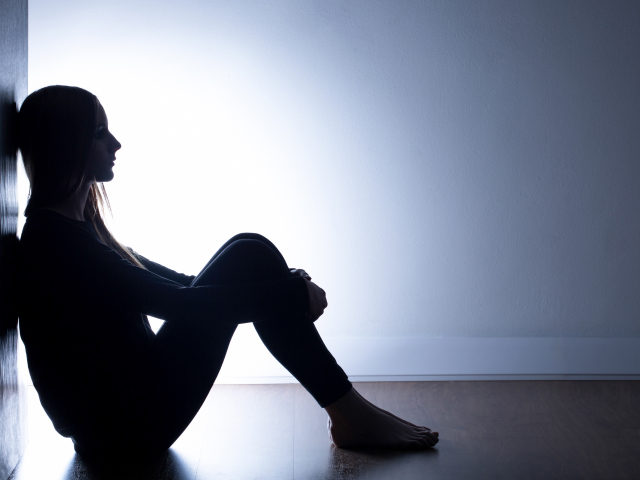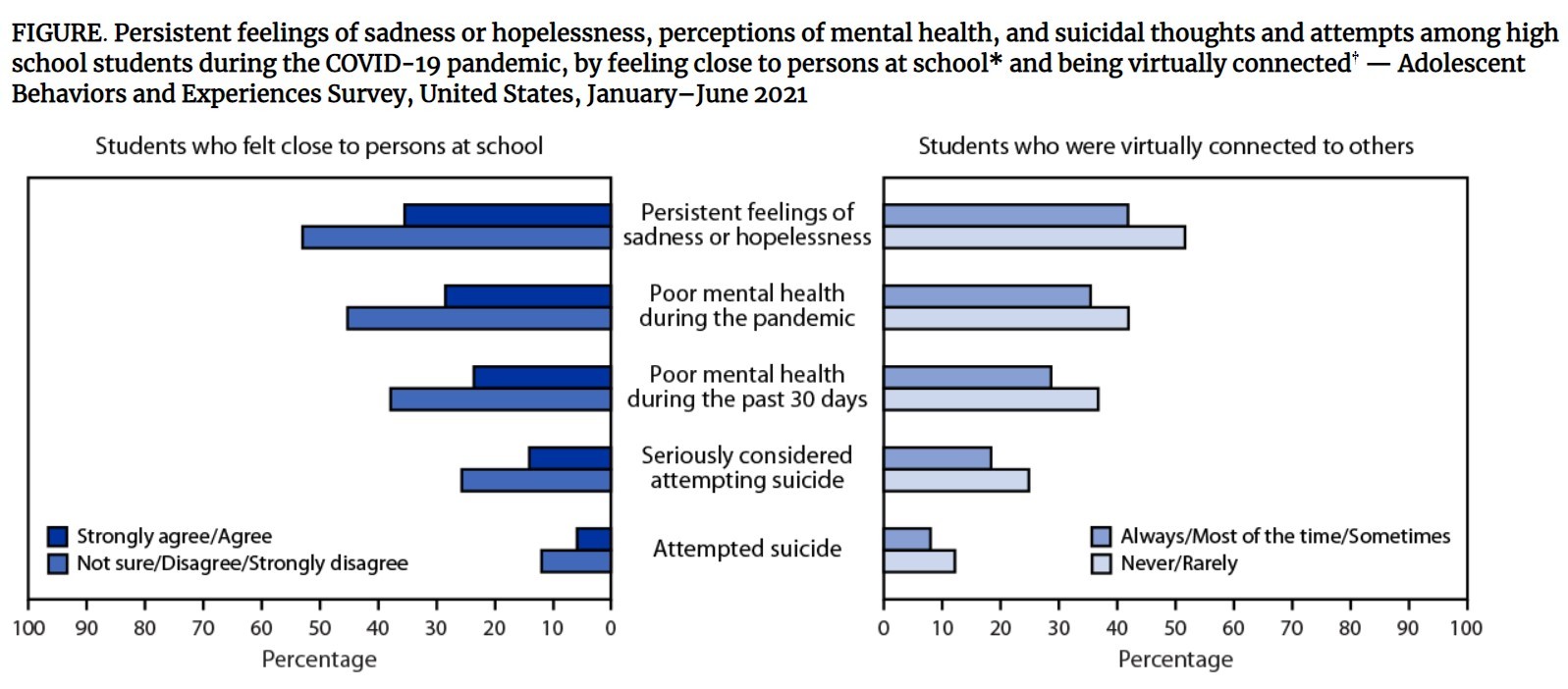The Centers for Disease Control and Prevention admitted there is an adolescent mental health crisis due to the draconian coronavirus protocols it recommended.
According to new survey data released Thursday, more than 44 percent of American teens reported “persistent feelings of sadness or hopelessness” while nearly 20 percent seriously considered suicide, and nine percent actually did attempt suicide in 2020.
“These data echo a cry for help,” Debra Houry, a CDC deputy director, told the Washington Post. “The COVID-19 pandemic has created traumatic stressors that have the potential to further erode students’ mental well-being.”
The survey results were collected between January and June 2021 — at the height of coronavirus measures — from 7,705 ninth- through twelfth-graders in a nationally representative sample of private and public schools.
While the virus was known early on to affect young persons at a drastically lower rate than adults, the CDC and other government officials were relentless in their advocacy for masking and shuttering schools — both of which contributed heavily to learning loss and mental health issues.
Overall, the study found over 37 percent of students experienced poor mental health at the time the survey was taken. Girls were twice as likely to report poor mental health than boys, though it is unclear if that is due to boys not wanting to answer the question honestly.
In addition, there was a stark contrast in mental health between students who felt connected to persons at school and those who did not. Nearly 79 percent of student respondents reported some level of “virtual learning” — something recommended by the CDC — but only just over 46 percent felt connected to others at school.
Among those who felt connected to others at school, only 28.4 percent reported poor mental health as contrasted with 45.2 percent of those who did not feel connected to others reporting poor mental health.
Similarly, just over 35 percent of connected teens felt feelings of “sadness or hopelessness,” whereas non-connected teens felt the same at a rate of nearly 53 percent.
Connected teens also seriously considered attempting suicide at a lower rate than their non-connected counterparts at 14 percent to 25.6 percent, respectively. Teens who felt connected and actually attempted suicide did so at a rate of 5.8 percent, whereas their non-connected peers did so at a rate of 11.9 percent.
In October 2021, the American Academy of Pediatrics, the American Academy of Child and Adolescent Psychiatry, and the Children’s Hospital Association wrote a joint letter declaring a “national health emergency in child and adolescent mental health” — however, they and the CDC maintain that some of the crisis is caused by both the coronavirus and “the ongoing struggle for racial justice,”
But even before the aforementioned groups declared a national health emergency for America’s youth, the American Academy of Pediatrics warned of an impending one early on in the pandemic.
Indeed, in the middle of 2020, the American Academy of Pediatrics urged school officials to open schools for in-person learning, warning of spiking depression, anxiety, and suicidal ideation among children.
Biden-appointed Surgeon General Vivek Murthy even pointed out that “depression and anxiety symptoms for youth around the world had doubled during the pandemic and that clinical data also revealed that ‘suspected suicide attempts were 51% higher for adolescent girls and 4% higher for adolescent boys compared to the same time period in early 2019.’”
“‘Pandemic-related measures … made it harder to recognize signs of child abuse, mental health concerns, and other challenges’ children were facing given the ‘reduced in-person interactions among children, friends, social supports, and professionals such as teachers [and] school counselors,’” Murthy’s study stated.
The CDC admitted to what many knew over the course of the pandemic to be true: children have always been at lower risk to the coronavirus and draconian lockdown and masking measures would devastate social development, academic achievement, and mental health among America’s youth.
Breccan F. Thies is a reporter for Breitbart News. You can follow him on Twitter @BreccanFThies.


COMMENTS
Please let us know if you're having issues with commenting.